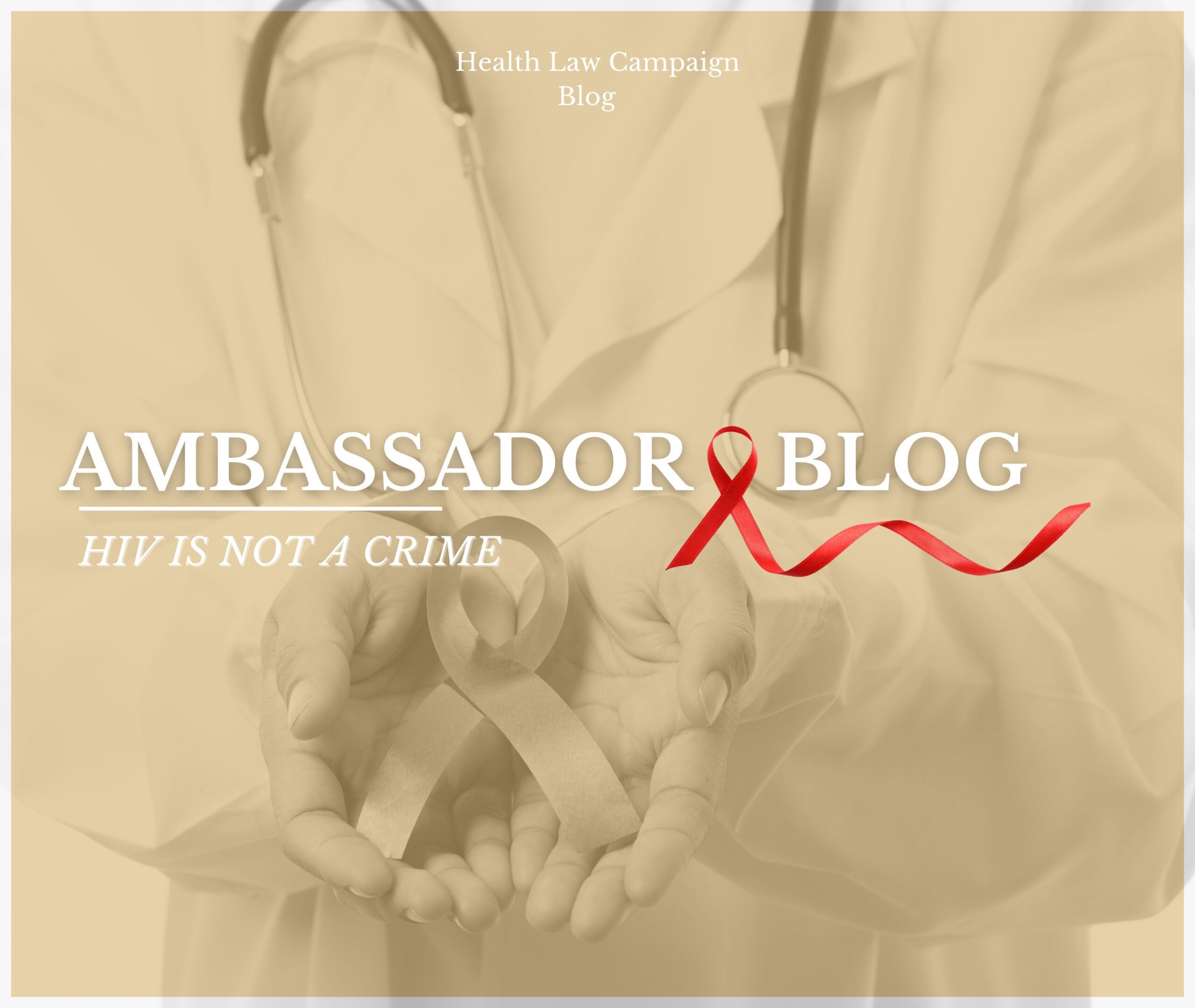19 Mar Empowering Change: How the MCJ HIV Is Not A Crime Ambassador Program Makes a Difference in Mississippi

By: Latosha Faulkner
Guest Blog
When I joined the Mississippi Center for Justice’s (MCJ’s) HIV Is Not A Crime Ambassador Program, my goal was clear: to advocate for people living with HIV, push for updates to Mississippi’s outdated HIV criminalization laws, and ensure that my community has access to stigma-free education opportunities and resources. Over time, I’ve seen progress—conversations once held in secrecy are now happening more openly, and more people are engaging in HIV education than ever before.
For years, HIV was a topic people avoided in my community, but that silence is shifting. More individuals are reaching out with questions, and even my colleagues in the medical field are inviting me to organize health fairs. One of the most memorable moments in my journey was when a young nurse admitted that he had learned more about HIV from our conversation than he had in school. His perspective changed when he realized how HIV could impact people close to him. These moments keep me motivated, proving that change happens one conversation at a time.
As an MCJ Ambassador, I use events, discussions, and hands-on community engagement to educate people about HIV and its criminalization laws. At my November 30, 2024 event, Empowering HIV & HIV Criminalization, I surveyed participants to assess their knowledge. Over 60% answered all questions correctly, while others scored highly but admitted they had learned new information—like the fact that HIV cannot be transmitted through saliva alone. These discussions matter, as they break down harmful misconceptions and reduce stigma.
Collaboration has been crucial in expanding my reach. I teamed up with the Ryan White Program to promote my event, contributed to the success of the LGBTQ Family and Friends Night, and actively participated in several health fairs. Though I initially struggled with confidence, this program has strengthened my ability to communicate effectively. Learning to use non-stigmatizing language—like saying “person living with HIV” instead of “HIV person”—has made a real difference in how people receive and engage with this information.
Looking ahead, I want to host more workshops, expand my social media outreach, and target key groups like medical professionals, faith-based organizations, and schools. The feedback I receive is often the same: people want to talk about HIV, but fear judgment. We can continue dismantling stigma and pushing for meaningful change by creating more safe spaces for these conversations. Whenever someone tells me they’ve learned something new, I know we’re one step closer to a future where education and advocacy replace fear and discrimination.
To learn more about MCJ’s work and to join us in this fight, visit https://www.mshivreform.org/.
For additional information on the Ryan White Program: https://msdh.ms.gov/page/14,13047,150.html
About Latosha Faulkner:
Latosha, from the small town of Lambert, MS, is a dedicated HIV advocate focused on combating stigma, human rights, and discrimination laws. She published her first book, Silently Betrayed, in 2020, shedding light on the stigma faced by people living with HIV.
Latosha earned a Bachelor’s degree in Behavioral Health from North Carolina Central University and is currently pursuing a Master’s degree in Social Work. With 15 years of healthcare experience, Latosha founded DefeatdaPurpose, LLC, which offers public health education, mental health support, and community outreach. Passionate about family gatherings, traveling, and embracing diversity, Latosha strives to make a positive impact wherever she goes. Her favorite quote, “Just because the bullet didn’t hit you, doesn’t mean you forget how close you were to that bullet,” reflects her deep commitment to advocacy and awareness.
The Elizabeth Taylor AIDS Foundation (ETAF) is a proud supporter of the Mississippi Center for Justice’s work against HIV criminalization and stigmatization and is a recipient of a grant from ETAF’s HIV Is Not A Crime program, which is a multi-state effort to end unjust HIV criminalization nationwide.
Points of view expressed herein are those of the author and do not necessarily represent the official position or policies of the Mississippi Center for Justice.


